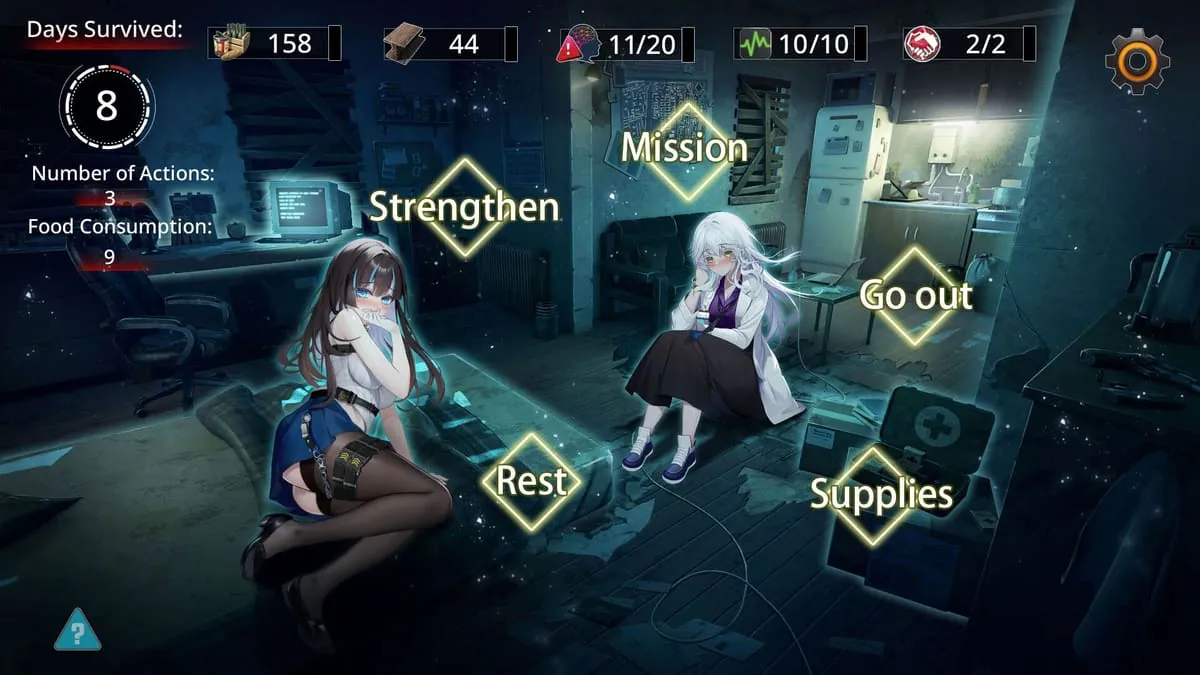
Away from Home
Play Away from Home
Away from Home review
An engaging guide to understanding and enjoying Away from Home
Away from Home is an immersive game that invites players into a unique interactive experience filled with engaging storylines and character development. This article explores the key aspects of Away from Home, providing insights into its gameplay mechanics, narrative elements, and player strategies. Whether you’re new to the game or looking to deepen your understanding, this guide offers practical advice and personal reflections to help you get the most out of your journey Away from Home.
Understanding Away from Home: Gameplay and Storyline
What is Away from Home about? 🗺️
Let me paint you a picture. You’re stepping off a train into a bustling, unfamiliar city. The language on the signs is foreign, the faces are new, and the weight of a single, life-altering decision rests entirely on your shoulders. This is the powerful opening of the Away from Home game, and it hooked me from the very first minute. At its heart, this isn’t a game about grand battles or magical powers; it’s a deeply human experience about starting over. You play as a character who has left their old life behind, seeking something new in a place where you are a complete stranger. 🚂
The premise is beautifully simple, yet the emotional landscape it explores is vast. The core of the game narrative is your journey of integration, survival, and self-discovery. Will you find a community? Will you succumb to loneliness? Can you build a new home from scratch? The game doesn’t give you easy answers. Instead, it presents a world rich with possibility and consequence, making the Away from Home game a truly personal odyssey. Every player’s story will be uniquely their own, shaped by the connections they forge and the paths they choose to walk.
Core gameplay mechanics 🎮
The genius of the Away from Home game lies in how its gameplay mechanics are seamlessly woven into the story. You don’t just watch a narrative unfold; you live it through your actions. The game is a masterclass in blending exploration, social simulation, and resource management into a cohesive whole. You’ll spend your days navigating the city, taking on odd jobs to earn money, and, most importantly, talking to people.
The interactive storyline is driven primarily through conversation. Talking to the diverse cast of characters you meet is not a passive activity. You are constantly making choices about what to say, which questions to ask, and even your tone of voice. These dialogue trees are the primary vehicle for the player choices impact, influencing how characters perceive you and what opportunities become available. I remember one playthrough where I was short on rent. I had the choice to beg for more time from my landlord, take a risky job from a shady character, or ask a new friend for a loan. I chose the loan, which saved my home but fundamentally shifted that friendship, making it feel transactional for several in-game weeks. The gameplay mechanics ensured my desperation had a tangible, emotional cost.
Beyond conversations, the game features a robust system for managing your well-being. This isn’t just a health bar; it’s a balance of your character’s energy, happiness, and finances.
| Gameplay Aspect | How It Works | Player Impact |
|---|---|---|
| Resource Management | Balancing money, energy, and mood through work, rest, and social activities. | Determines your ability to progress and access new story beats. |
| Relationship Building | Investing time in specific characters through conversations and favors. | Unlocks unique story arcs, support during crises, and potential endings. |
| Exploration & Discovery | Unlocking new city districts by fulfilling certain conditions. | Opens up new job opportunities, characters, and side quests. |
These gameplay mechanics are deceptively simple on the surface, but they create a complex web of cause and effect. Deciding to spend your last bit of cash on a warm meal instead of a bus pass might seem minor, but it can lead to a chance meeting with a helpful stranger or leave you exhausted and stranded. This attention to detail is what makes the Away from Home game so compelling.
Narrative and character development ✨
This is where the Away from Home game truly shines. The game narrative isn’t a fixed track you ride from start to finish; it’s a garden you cultivate. Your choices are the seeds, and the resulting relationships and consequences are the bloom. The character development is some of the most authentic I’ve ever experienced in a game, not just for your own avatar, but for every person you meet.
Let me share a story that perfectly illustrates the player choices impact. Early on, I met Elara, a quiet artist who sold her paintings in the town square. I could have just walked by, but I chose to stop and compliment her work. This single interaction opened up a multi-layered side story. I learned she was struggling with creative block and family pressure. Over several weeks, I had the option to check in on her, bring her coffee, or even help her gather art supplies. In one playthrough, I encouraged her to stand up to her family, which led to her gaining confidence and eventually holding a successful gallery show. In another, I was too wrapped up in my own problems and neglected her, only to find her stall gone one day, a note left behind saying she’d given up and moved back home. I was genuinely heartbroken. My inaction had directly led to the end of her dream. 😢
This level of character development is possible because the game remembers everything. Characters reference past conversations and react to your reputation. The interactive storyline ensures that no one feels like a quest dispenser; they feel like real people with their own lives, hopes, and fears that exist outside of your presence. Your own protagonist undergoes significant character development as well, shaped by your decisions. Are you generous or selfish? Optimistic or cynical? Do you cling to the past or embrace your new life? The game reflects your choices back at you, making your journey of self-discovery feel earned.
Pro Tip: Don’t try to “game” the system on your first playthrough. Role-play authentically. Make the choices you genuinely feel your character would make. The most powerful immersive game experience comes from embracing the consequences, both good and bad.
The magic of the Away from Home game is this perfect synergy between game narrative and gameplay mechanics. The way you manage your time and resources directly influences which story threads you can pull on. Want to pursue a romance with the local baker? You’d better ensure your work schedule allows you to visit the bakery when they’re there. This creates a powerful, immersive game experience where you’re not just controlling a character—you are living a life, with all its beautiful, messy, and unpredictable moments. It’s a testament to how powerful video games can be as a storytelling medium, making you care deeply about the digital lives you help shape. ❤️
Away from Home offers a compelling blend of storytelling and gameplay that captivates players through meaningful choices and rich character interactions. By understanding its mechanics and narrative depth, players can fully immerse themselves and enjoy a personalized experience. Whether you are just starting or looking to refine your approach, Away from Home promises an engaging journey worth exploring. Dive in and discover what makes this game a unique adventure.





















